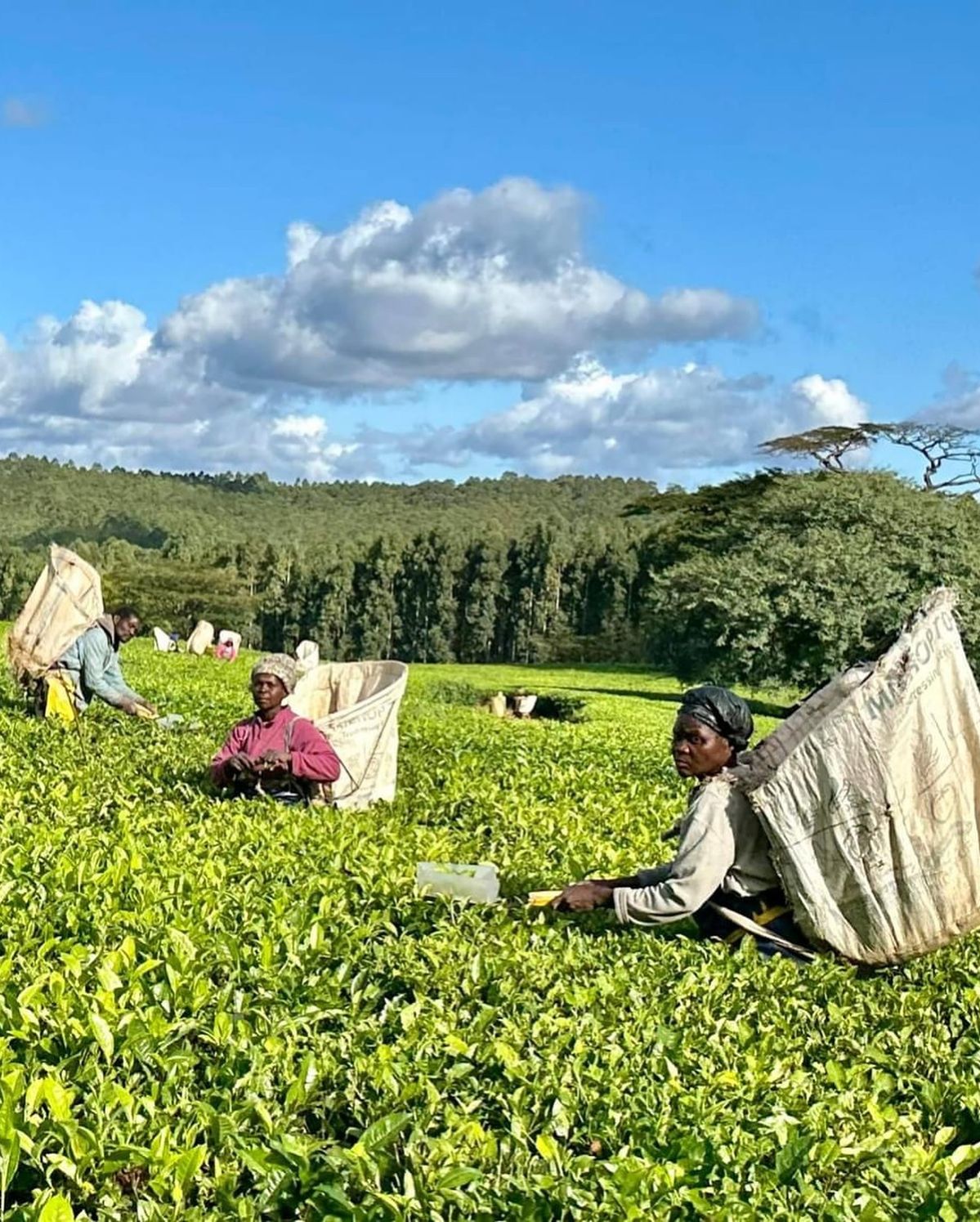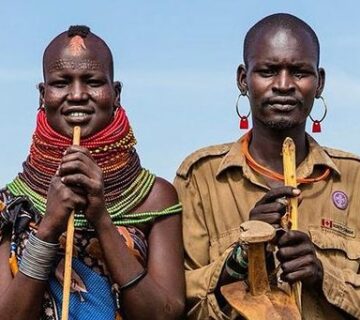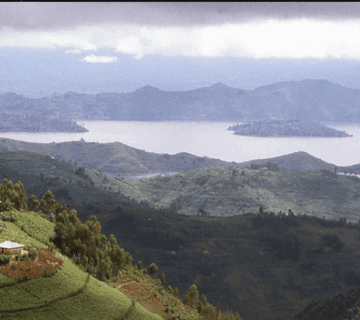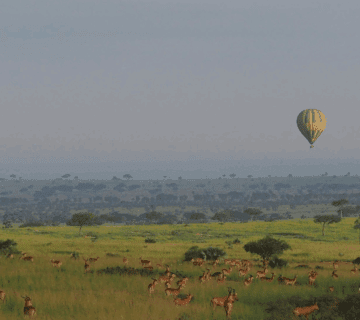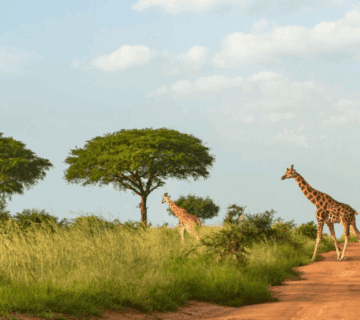Uganda, often called the “Pearl of Africa,” is renowned for its stunning landscapes, rich culture, and vibrant wildlife. Among its many natural treasures, Uganda’s lush tea plantations stand out as unique destinations offering a blend of scenic beauty, cultural heritage, and hands-on learning. For groups eager to explore something different from the typical safari or city tour, a Tea Plantation Group Tour is an ideal way to discover the charm of Uganda’s countryside while immersing in the art and science of tea growing.
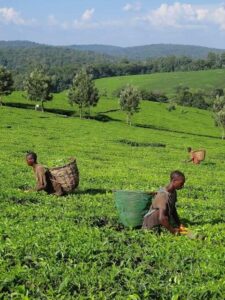
In this blog, we will explore why a Tea Plantation Group Tour in Uganda is an enriching and enjoyable experience, what to expect, and how it offers unforgettable memories for groups of friends, families, corporate teams, or any collective traveler seeking a fresh adventure.
Why Choose a Tea Plantation Group Tour in Uganda?
Tea has a long-standing history in Uganda, introduced by British settlers in the early 20th century. Today, Uganda is one of Africa’s leading tea producers, with vast plantations mostly located in the highlands of western and southwestern Uganda, including regions like Bugisu, Mount Elgon, and parts of Fort Portal.
Here’s why a Tea Plantation Group Tour is becoming a favorite for travelers:
1. Experience Uganda’s Verdant Countryside
Unlike the busy cities and crowded tourist spots, tea plantations spread across rolling hills and misty mountains, offering a serene and picturesque setting. This natural beauty provides a refreshing backdrop for any group tour, allowing visitors to unwind and reconnect with nature.
2. Educational and Interactive
Tea farming is a labor-intensive and fascinating process that few get to see up close. A Tea Plantation Group Tour gives visitors a chance to learn about the cultivation, harvesting, and processing of tea leaves — from the delicate picking of buds to the drying and packaging of tea.
3. Support Local Communities
Most tea estates are closely linked with the local communities that rely on tea farming for their livelihood. Visiting these plantations provides insight into the lives of the farmers and workers, promoting responsible tourism that benefits rural economies.
4. Perfect for Groups
Whether you’re organizing a corporate retreat, family holiday, or an outing with friends, a Tea Plantation Group Tour is ideal. Group tours often come with special arrangements such as guided walks, tea tasting sessions, and cultural performances tailored to create shared, memorable experiences.
What to Expect on a Tea Plantation Group Tour in Uganda
Every Tea Plantation Group Tour can be tailored to fit the group’s interests, but typically, here’s what the experience includes:
Arrival and Welcome
Upon arrival at the tea estate, your group will be warmly welcomed by plantation staff and local guides. You’ll often start with a brief introduction about the history of the plantation and the significance of tea in Uganda’s economy.
Guided Walk Through the Tea Fields
The tour usually begins with a walk through the lush green tea fields, where your guide explains the tea plant varieties, how they thrive in Uganda’s unique climate, and the ideal conditions for growing high-quality tea. This hands-on interaction often includes demonstrations on how tea leaves are carefully plucked by hand.
Tea Processing Demonstration
One of the most intriguing parts of the tour is visiting the processing factory. Here, groups can observe the transformation of freshly picked tea leaves through stages like withering, rolling, fermenting, drying, and sorting. This behind-the-scenes look demystifies the process and highlights the skill and precision involved.
Tea Tasting Session
No tea plantation visit is complete without tasting! Groups enjoy sampling different varieties of tea produced on the estate, guided by experts who explain the subtle flavor profiles and brewing methods. It’s a delightful sensory experience that allows visitors to appreciate the quality and diversity of Ugandan teas.
Cultural and Community Interaction
Many tea estates arrange visits to nearby villages where groups can engage with local communities, witness traditional dances, and learn about the social and cultural fabric that supports tea farming families.
Souvenir Shopping
Most plantations have a shop where visitors can purchase fresh tea leaves, packaged teas, and other related products. It’s a great way to bring a taste of Uganda back home or gift to loved ones.
Top Tea Plantation Regions to Visit in Uganda
Uganda’s diverse tea-growing regions offer slightly different experiences due to variations in climate, altitude, and culture. Here are some of the best places for a Tea Plantation Group Tour:
1. Bugisu Region
Situated on the slopes of Mount Elgon, Bugisu is famous for its high-quality Arabica tea. The cool climate and fertile volcanic soils produce tea with a distinct aroma and flavor. Visiting Bugisu’s plantations gives groups a chance to explore mountain landscapes and experience the rich traditions of the Bagisu people.
2. Mount Elgon Area
Bordering Kenya, Mount Elgon’s tea estates boast breathtaking views of the mountain and the surrounding valleys. This region’s plantations often combine tea tours with nature walks or hikes, making it an excellent destination for groups who enjoy active and scenic experiences.
3. Fort Portal and Toro Region
Known as the “Land of a Thousand Hills,” Fort Portal offers tea plantations nestled among lush hills and tropical forests. This area is also rich in cultural heritage and biodiversity, allowing groups to combine their tea tours with visits to crater lakes and national parks nearby.
How to Make Your Tea Plantation Group Tour Special
Customize Your Itinerary
Talk with your tour operator about what your group wants most — whether it’s extended time in the fields, more in-depth processing tours, cultural experiences, or combining tea tours with other activities like hiking or bird watching.
Combine with Other Nature and Cultural Tours
Uganda’s tea regions are close to national parks and other natural attractions. Adding a day for chimpanzee tracking in Kibale Forest, a visit to crater lakes, or exploring nearby waterfalls enriches the experience for groups.
Include Workshops or Team-Building Activities
For corporate groups, tea estates sometimes offer workshops or team-building exercises inspired by tea farming, focusing on cooperation, patience, and attention to detail — qualities that tea production embodies.
Arrange Group Dining
Enjoy traditional Ugandan meals prepared with fresh local ingredients, either at the plantation or nearby lodges. Sharing food is a wonderful way to bond and immerse in local culture.
What to Pack for Your Tea Plantation Group Tour
To make your tea plantation experience comfortable and enjoyable, here are some packing tips:
Comfortable walking shoes or boots (fields may be damp or muddy)
Lightweight, breathable clothing with long sleeves and pants (for sun and insect protection)
Hat and sunglasses for sun protection
A light rain jacket or poncho, especially during rainy seasons
A reusable water bottle to stay hydrated
Camera or smartphone to capture the beautiful scenery
Binoculars for birdwatching around the plantations
Personal medications and insect repellent
Benefits of Booking a Tea Plantation Group Tour
Booking a Tea Plantation Group Tour offers several advantages:
Expert Local Guides
Groups benefit from knowledgeable guides who not only explain tea farming but share insights into the local environment and culture.
Tailored Experiences
Group tours can be customized to meet specific interests, pacing, and accessibility needs, ensuring everyone enjoys the experience.
Cost-Effective
Many plantations offer group discounts or packages that include meals, transportation, and activities, making the tour affordable and convenient.
Enhanced Safety and Support
Traveling as a group with an experienced operator adds a layer of safety and support, particularly in rural areas where language barriers or logistics can be challenging.
Sustainable Tourism and Community Impact
Choosing a Tea Plantation Group Tour in Uganda contributes to sustainable tourism. Many tea estates work closely with local communities, providing employment and investing in education and health services. By visiting, your group supports these initiatives, encourages responsible tourism, and helps preserve Uganda’s natural and cultural heritage.
Sample Tea Plantation Group Tour Itinerary
Day 1: Arrival and Orientation
Arrive at your lodge near the tea estate, meet your guides, and enjoy a welcome dinner with an overview of the tour.
Day-2: Guided Walk Through Tea Fields
Start early with a guided walk through the lush tea gardens, learning about cultivation and harvesting methods.
Day 3: Factory Tour and Tea Tasting
Visit the processing factory to observe tea production stages, followed by a tea tasting session highlighting local varieties.
Day-4: Cultural Visit and Community Interaction
Visit a nearby village, engage with locals, enjoy traditional dances, and learn about daily life connected to tea farming.
Day 5: Optional Nature Activities and Departure
Choose from bird watching, hiking, or visiting nearby crater lakes before departure.
Why Uganda’s Tea Plantation Group Tours Should Be on Your Travel List
Uganda’s tea plantations offer more than just a glimpse into tea production; they provide a holistic cultural and environmental experience. For groups seeking a tranquil, educational, and immersive journey away from the usual tourist trail, a Tea Plantation Group Tour delivers exactly that.
From the breathtaking landscapes and the aromatic fields to the warm local hospitality and fascinating stories behind each cup of tea, your group will return enriched, refreshed, and connected with the authentic heart of Uganda.
Ready to organize your group’s next adventure? Contact us to customize your Tea Plantation Group Tour in Uganda today and discover the refreshing beauty and culture of this extraordinary destination.

